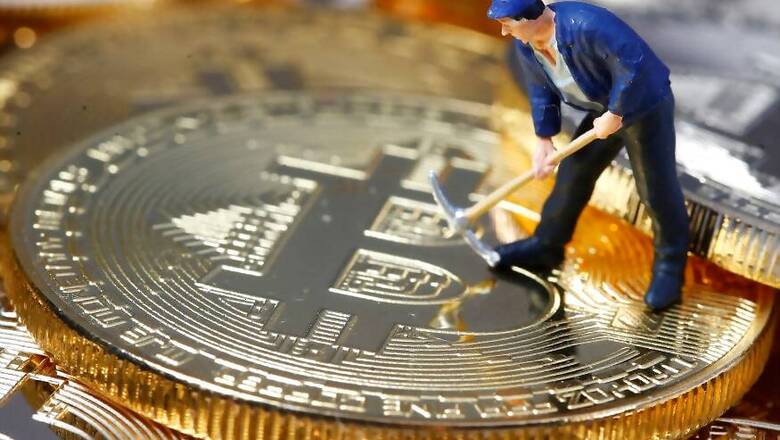
views
Majuro (Marshall Islands): The tiny Marshall Islands is creating its own digital currency in order to raise some hard cash to pay bills and boost the economy.
The Pacific island nation said it became the first country in the world to recognise a cryptocurrency as its legal tender when it passed a law this past week to create the digital "Sovereign," or SOV. In the nation of 60,000, the cryptocurrency will have equal status with the US dollar as a form of payment.
Venezuela last month became the first country to launch its own cryptocurrency when it launched the virtual Petro, backed by crude oil reserves. The Marshall Islands said the SOV will be different because it will be recognized in law as legal tender, effectively backed by the government.
The Marshall Islands is partnering with Israeli company Neema to launch the SOV. It plans to sell some of the currency to international investors and spend the proceeds.
The Marshall Islands says the SOV will require users to identify themselves, thus avoiding the anonymity that has kept bitcoin and other cryptocurrencies from gaining support from governments.
"This is a historic moment for our people, finally issuing and using our own currency, alongside the USD (U.S. dollar)," President Hilda Heine said in a statement. "It is another step of manifesting our national liberty." The Marshall Islands is closely aligned with the U.S. under a Compact of Free Association and uses the dollar as its currency. Under the compact, the US provides the Marshall Islands with about USD 70 million each year in assistance. The U.S. runs a military base on Kwajalein Atoll.
Lawmakers passed the cryptocurrency measure Monday following five days of heated debate. It's unclear when the nation will issue the currency.
Leaders hope the SOV will one day be used by residents for everything from paying taxes to buying groceries. The law states that the Marshall Islands will issue 24 million SOVs in what it calls an Initial Currency Offering. Half of those will go to the government and half to Neema.
The Marshall Islands intends to initially sell 6 million SOVs to international investors. It says it will use the money to help pay for the budget, invest in projects to mitigate the effects of global warming and support those people still affected by U.S. nuclear testing.
The country also intends to hand out 2.4 million SOVs to residents. Neema Chief Executive Barak Ben-Ezer said the SOV marked a new era for cryptocurrency.
"SOV is about getting rid of the excuses" for not shifting to digital assets, he said in a statement. He said it solved a huge problem with cryptocurrencies, which haven't previously been recognized as "real" money by banks, regulators and the U.S. Internal Revenue Service.
Some lawmakers expressed concern about the large amount of the new currency that would go to the Israeli company, while others argued the country had urgent needs and the cash would help.
Jehan Chu, the Hong Kong-based co-founder of blockchain platform Kenetic, said he thought it was an amazing move by the Marshall Islands and was the way of the future. "Physical currency is going by the wayside as an antiquated, obsolete form of transacting," he said.
But Chu added that he didn't think the currency would hold much appeal for international investors or be particularly valuable outside the Marshall Islands. And many people in the Marshall Islands and beyond remain skeptical of cryptocurrencies.
Bank of England Governor Mark Carney said this past week that a global speculative mania had encouraged a proliferation of the currencies, and that they needed to be held to the same standards as the rest of the financial system.
"The prices of many cryptocurrencies have exhibited the classic hallmarks of bubbles ... reliant in part on finding the greater fool," Carney said in a speech to the Scottish Economics conference in Edinburgh.




















Comments
0 comment